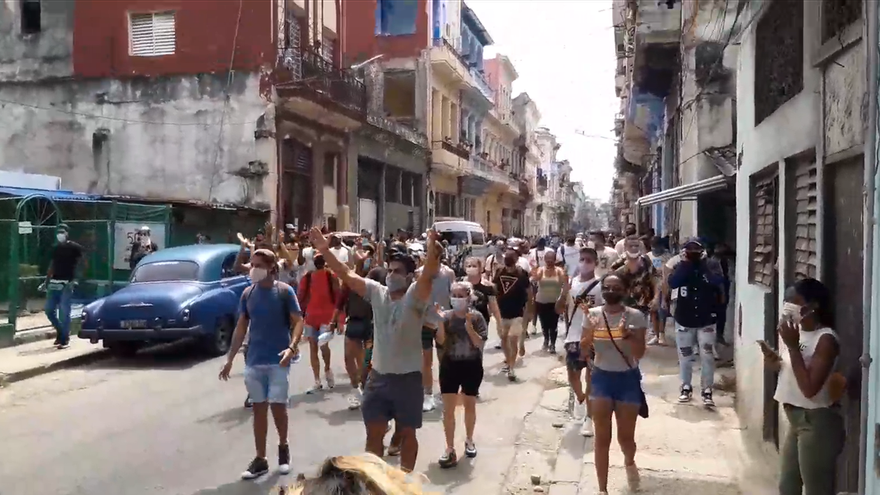
![]() 14ymedio, Madrid, 23 March 2022 — If, as predicted, the draft of Cuba’s new Criminal Code is approved as is, independent activists and journalists will be “extremely exposed” to the arbitrariness of State Security. That point is stressed in a report published by the Observatorio Legislativo de Cuba [Cuba’s Legislative Observatory], an initiative of the Demo Amlat network which analyzes new norms on the Island as a result of the Constitution approved in 2019.
14ymedio, Madrid, 23 March 2022 — If, as predicted, the draft of Cuba’s new Criminal Code is approved as is, independent activists and journalists will be “extremely exposed” to the arbitrariness of State Security. That point is stressed in a report published by the Observatorio Legislativo de Cuba [Cuba’s Legislative Observatory], an initiative of the Demo Amlat network which analyzes new norms on the Island as a result of the Constitution approved in 2019.
The document, presented on Wednesday at an online event in which specialists Johanna Cilano and Carlos Hernádez participated from Mexico, highlights the tight control and the opacity of the government on the Island with regard to the Criminal Code. This contrasts with the publicity given, from the highest authorities to provincial-level state press, to the Family Code, which has been out for “popular consultation” since February 1st.
Furthermore, the document denounces the new norms which criminalize activities that are legal in any other country such as practicing independent journalism or associating with others to protest or change a law, as well as leading a civil society, which is not permitted by the Cuban State.
For example, the report mentions Article 143 of the draft norm, which establishes penalties of up to ten years in jail for anyone who receives funding “themselves or as representatives of non-governmental organizations, international institutions, associations or from any natural or legal person of the country or of a foreign State” to “defray activities against the State and its consitutional order.” This, said Johanna Cilano during the presentation, includes paying for mobile phone minutes from outside the country.
Also, denounced DemoAmlat, “it assaults the right to finance organized civil society, as well as the legitimate limitations to freedom of expression according to the American Convention on Human Rights.”
Cilano highlighted that the context to approve the new legislation is marked by the July 11th protests and its objective is to limit citizen participation in public matters.
As stated in the report, the draft “proves to be a product of the moment, offering the regime tools that will allow it to legalize arbitrariness; deepen criminalization of independent media, journalists and human rights activists; inhibit citizen participation in social activism; censor and promote self-censorship of journalists, activists and defenders of human rights.”
Similarly, as Reinaldo Escobar analyzed for this daily, the death penalty will continue to be in effect in the new norm as a “latent threat from the regime against opponents,” according to the DemoAmlat report.
The network concludes, in summary, that the draft Criminal Code, “presumed to be approved in April 2022, without public consulation, represents a danger to the citizenry.”
Translated by: Silvia Suárez
____________
COLLABORATE WITH OUR WORK: The 14ymedio team is committed to practicing serious journalism that reflects Cuba’s reality in all its depth. Thank you for joining us on this long journey. We invite you to continue supporting us by becoming a member of 14ymedio now. Together we can continue transforming journalism in Cuba.
